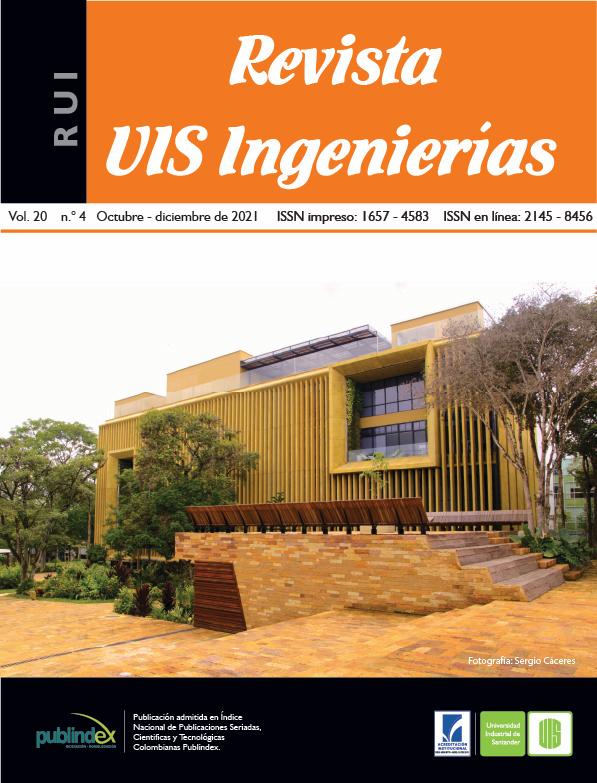Identifying syntactic structures in corpus: An approach for finding knowledge areas in project-driven disciplines
Published 2021-07-07
Keywords
- syntactic structures,
- knowledge areas,
- project management,
- project-driven disciplines,
- project management corpus
How to Cite
Abstract
Bodies of knowledge and project management standards are defined as sets of proven methods and practices widely applied by practitioners for managing projects in particular disciplines. Since bodies of knowledge are discipline-dependent, when they are applied outside their discipline, they fail in accomplishing their purpose. Aiming to improve such bodies of knowledge, some proposals are made by performing comparisons among them. Particularly, some authors propose the adoption of new elements such as knowledge areas as a result of comparison processes. However, such proposals are empirically obtained and they are dependent on the author’s judgment. Such proposals can be improved by formalizing the adoption of new elements when comparing bodies of knowledge. Consequently, in this paper, we propose a formalization method for adopting knowledge areas when comparing standards by identifying syntactic structures in project management corpus. By formalizing knowledge area adoption, we allow for improving bodies of knowledge in an author-independent way.
Downloads
References
[2] “Kernel and Language for Software Engineering Methods (Essence) version 1.2,” OMG Doc. No. formal/18-10-02, 2018.
[3] D. F. Ayala, The DAMA Guide to the Data Management Body of Knowledge, First ed. Bradley Beach, NJ, USA: DAMA international, 2009.
[4] H. Smyth, P. Morris, “An epistemological evaluation of research into projects and their management: Methodological issues,” International Journal of Project Management, vol. 25, no. 4, pp. 423-436, 2007, doi: 10.1016/j.ijproman.2007.01.006.
[5] P. Morris, L. Crawford, D. Hodgson, M. Shepherd, J. Thomas, “Exploring the role of formal bodies of knowledge in defining a profession—The case of project management,” International Journal of Project Management, vol. 24, no. 8, pp. 710-721, 2006, doi: 10.1016/j.ijproman.2006.09.012.
[6] S. Ghosh, D. Forrest, T. DiNetta, B. Wolfe, D. Lambert, “Enhance PMBOK by Comparing it with P2M, ICB, PRINCE2, APM and Scrum Project Management Standards,” PM World Today, vol. 14, no. 1, pp. 1-77, 2012.
[7] C. Zapata, A. Henao, “Alfa Riesgo: Un elemento universal presente en todos los esfuerzos de ingeniería de software,” in CONISOFT, Puebla, MX, 2016.
[8] M. Simonette, M. Magalháes, E. Spina, “PMBOK and Essence: partners for IoT projects”, en Software engineering: methods, modeling, and teaching, Bogotá: Editorial Bonaventuriana, 2017, pp. 211-223.
[9] T. Thesing, C. Feldmann, M. Burchardt, “Agile versus waterfall project management: decision model for selecting the appropriate approach to a project,” Procedia Computer Science, vol. 181, pp. 746-756, 2021, doi: 10.1016/j.procs.2021.01.227.
[10] S. Matos, E. Lopes, “Prince2 or PMBOK—a question of choice”, Procedia Technology, vol. 9, pp. 787-794, 2013, doi: 10.1016/j.protcy.2013.12.087.
[11] N. Takagi, J. Varajão, “Integration of success management into project management guides and methodologies—position paper,” Procedia Computer Science, vol. 164, pp. 366-372, 2019, doi: 10.1016/j.procs.2019.12.195.
[12] T. Raz, D. Hillson, “A comparative review of risk management standards,” Risk Management, vol. 7, no. 4, pp. 53-66, 2005, doi: 10.1057/palgrave.rm.8240227.
[13] J. Masso, F. Pino, C. Pardo, F. García, and M. Piattini, “Risk management in the software life cycle: a systematic literature review,” Computer standards & interfaces, vol. 71, pp. 103431, 2020, doi: 10.1016/j.csi.2020.103431.
[14] N. Chomsky, Syntactic structures. Berlin: Mouton Publishers, 1957, doi: 10.1515/9783110218329.
[15] H. Hart, C. Baehr, “Sustainable practices for developing a body of knowledge,” Technical communication, vol. 60, no. 4, pp. 259-266, 2013.
[16] H. Cunningham, D. Maynard, K. Bontcheva, V. Tablan, N. Aswani, I. Roberts, G. Gorrel, A. Funk, A. Roberts, D. Damljanovic, T. Heitz, M. Greenwood, H. Saggion, J. Petrak, Y. Li, W. Peters, Developing Language processing components with GATE Version 6 (a user guide). Sheffield, South Yorkshire, 2011.
[17] I. Jacobson, H. Lawson, P.-W. Ng, P. McMahon, M. Goedicke, The essentials of modern software engineering: free the practices from the method prisons!. Milton Keynes, Inglaterra: ACM Press, 2019, doi: 10.1145/3277669.
[18] A. Henao, “Towards a theory for defining a project management multidisciplinary kernel: an approach based on abstract level progress health attributes,” M.Sc. Thesis, Universidad Nacional de Colombia, Medellín, 2018.


